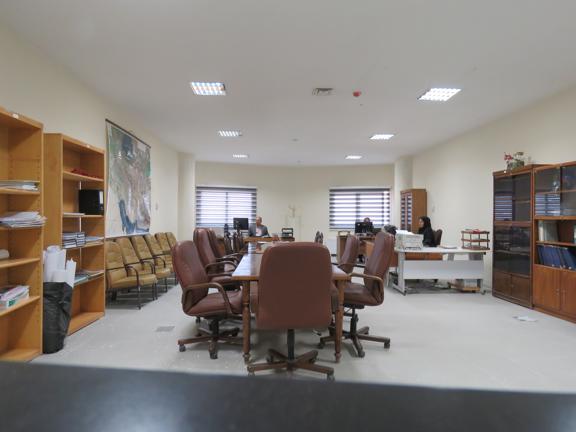

Welcome to the Department of Landscape Engineering: Where Science, Art, and Nature Converge to Create Livable Spaces
The Department of Landscape Engineering at the University of Sistan and Baluchestan is a hub of creativity and innovation at the intersection of landscape architecture, ecological sciences, and the art of design. We believe that green space is not merely an ornamental element in the urban fabric but a vital and dynamic infrastructure that ensures ecosystem health, urban resilience, and the psychological well-being of society. Our mission is to cultivate a new generation of engineers and designers who, equipped with a profound understanding of ecology, a mastery of aesthetic principles, and proficiency in modern technologies, are capable of creating landscapes that are sustainable, functional, and inspiring. From designing urban parks and restoring natural landscapes to developing innovative green walls and roof gardens, we seek to establish a harmonious balance between human needs and nature’s capacities in every project, thereby enhancing the quality of life across all scales.
Message from the Head of the Department
It is with great pride and pleasure that I welcome you to the Department of Landscape Engineering, a pioneer in landscape education and research in southeastern Iran. In an era where environmental challenges and the need for high-quality urban spaces are more pronounced than ever, our mission as an academic institution is to train creative and responsible specialists who can seamlessly blend the art of design with the science of sustainability. Our department, a forerunner in offering this discipline in the country and one of only four universities providing a Master’s program, is proud to offer a dynamic environment for learning, research, and the creation of innovative solutions for urban and natural landscapes. I invite you, the future architects of Iran’s green spaces, to join our academic family and step forward with us on the path to building a healthier, more beautiful, and more sustainable environment for current and future generations.
With respect,
Dr. Behrouz Naroei
Head of the Department of Landscape Engineering
Biography of the Head of the Department
Dr. Behrouz Naroei, an Assistant Professor and the Head of the Department of Landscape Engineering, leads the academic direction of the department with his expertise in environmental planning and landscape design. He holds a Ph.D. from Shahid Beheshti University, a Master’s degree in Environmental Design from the University of Tehran, and a Bachelor’s degree in Landscape Engineering from the University of Tabriz. This unique academic trajectory has endowed him with a comprehensive and interdisciplinary perspective, ranging from the macro-scale of regional planning to the intricate details of landscape design. Through the publication of numerous articles in reputable national and international journals, the translation of the book “Landscape Architecture: A Very Short Introduction,” and valuable executive experience in municipal and research projects, Dr. Naroei has skillfully bridged theoretical knowledge with practical application. His leadership is founded on the integration of ecological knowledge, visual aesthetics, and environmental resilience, which plays a pivotal role in guiding the department toward the new frontiers of landscape engineering.
Academic Programs
1. B.Sc. in Landscape Engineering
This program is the gateway to the fascinating world of designing and managing living spaces. Here, students learn the fundamentals of agricultural sciences, design principles, technical drawing, and ecology to speak the common language of science and art. The objective of this course is to train skilled professionals capable of designing, implementing, and supervising green space projects, from local parks to large-scale site developments. As creative engineers in municipalities, consulting firms, and environmental organizations, our graduates play a key role in making Iran greener. Established in 2009 at the University of Sistan and Baluchestan, this program builds a solid foundation for your professional future.
[Learn More & Course Syllabus]
2. M.Sc. in Landscape Engineering
This advanced program, offered by only a select few universities in Iran including the University of Sistan and Baluchestan, is designed to cultivate senior researchers and designers in the field of landscape. By focusing on complex design theories, sustainable management of urban ecosystems, landscape regeneration techniques, and environmental impact assessment, students are prepared to lead large-scale projects and solve complex problems. As theorists, senior managers of national projects, and specialized consultants, our master’s graduates will shape the future of green space policy and design in the country, pushing the boundaries of this knowledge in both academic and professional arenas.